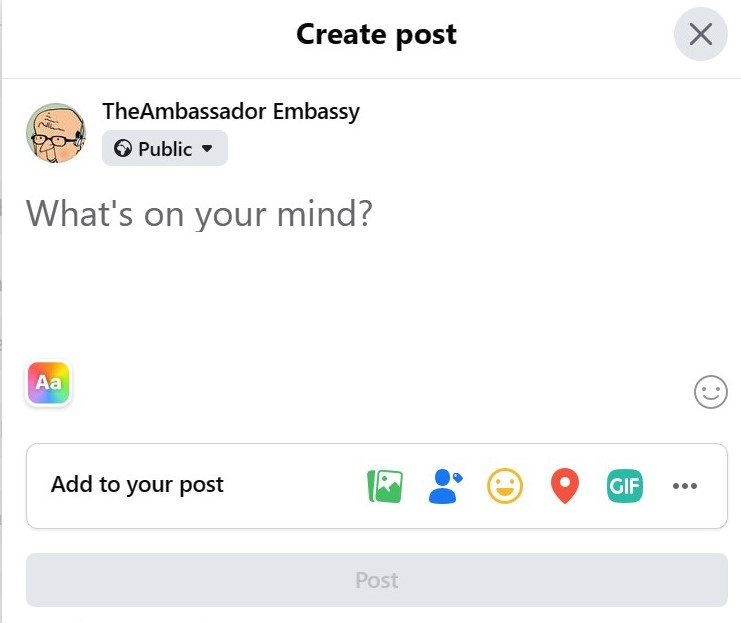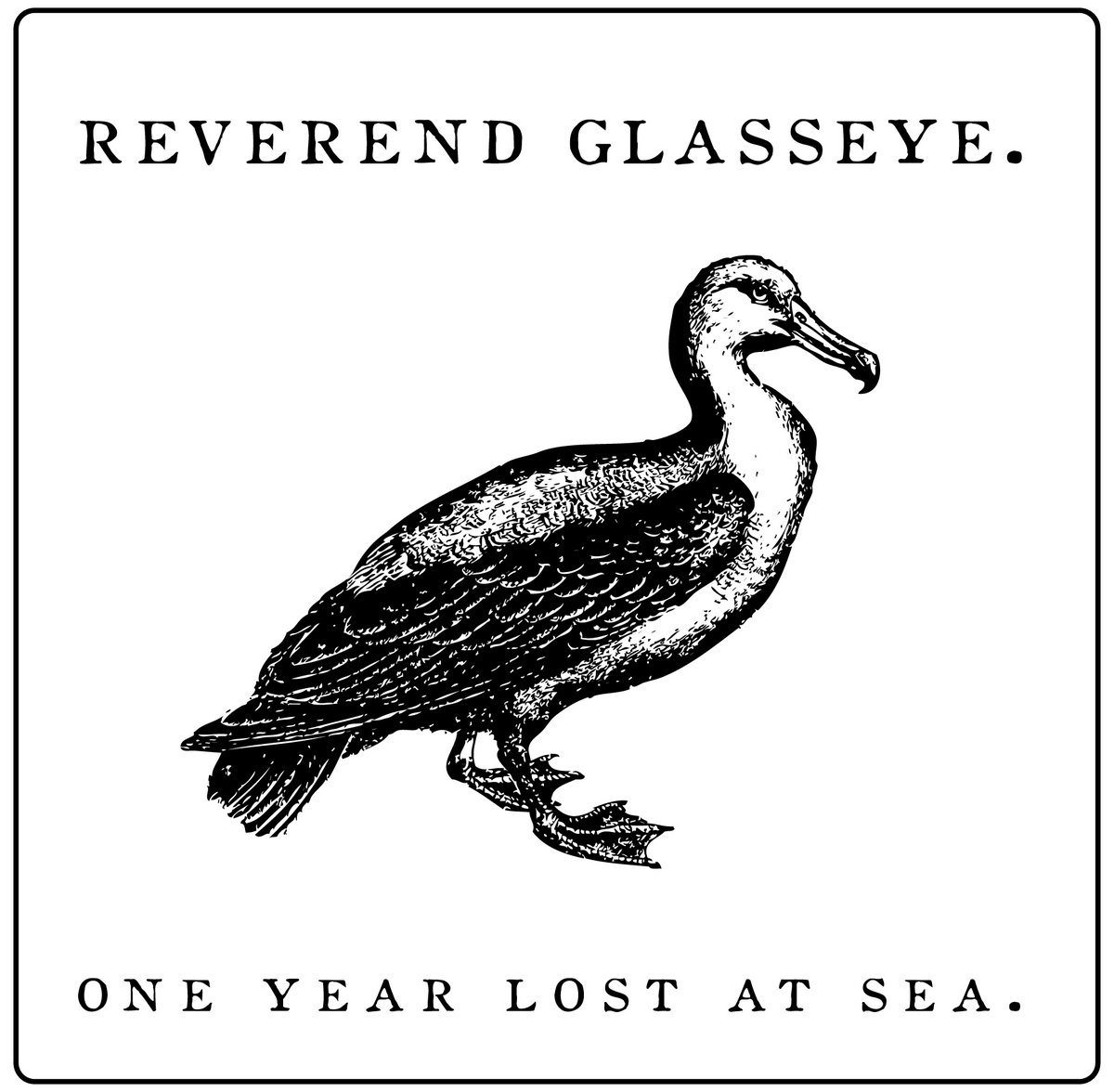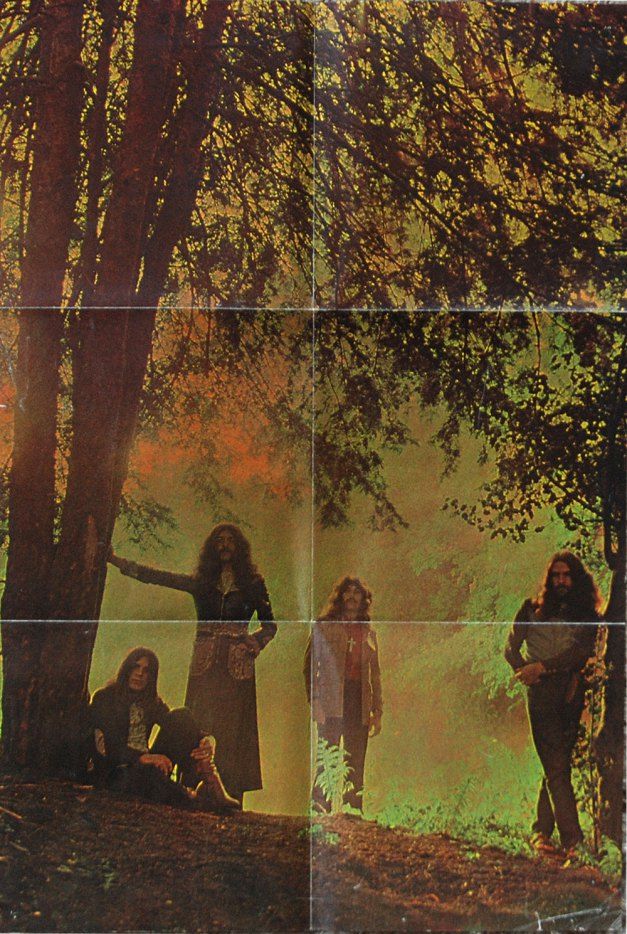 Once upon a time social media was a tool to interact and keep in touch with others. Initially, some interactions came closer than you anticipated. I remember a coworker complaining: "I haven't seen my classmate for 30 years. Then she added me. And now I know what she's having for dinner. Every night". There was a time when nothing was too insignificant not to be posted or shared. This was also the golden age for social media lurkers who was active on social media platforms, but instead of participating or engaging with others, consumed informantion and scrolled through content feeds. The last couple of years Facebook has been taken over by influencers, suggestions and advertisment. Their algorithms has actively supported this development. This is maybe an illustration of the different phases in the lifecycle of social media (up, down and out). I'm a stranger in this world and a very late adopter. When I joined Facebook almost 10 years ago it was anonymously under a pseudonym. I have several reasons to remain private. I had one purpose: to promote the website. Anyway, here I stand with 41 FB-friends (a few real friends, some like-minded music lovers and many "friend collectors"). I'm an easy target. I accept almost every friend request. After all, I don't exist. However, I do have a lot of website content to post. Nowadays, 50 percent of all Facebook users doesn't post anything. A large part of the remaining 50 percent are very selective about when, how and what they post. It has become dubious even to make a post. Where does that leave us? Social media minus social is media.
Once upon a time social media was a tool to interact and keep in touch with others. Initially, some interactions came closer than you anticipated. I remember a coworker complaining: "I haven't seen my classmate for 30 years. Then she added me. And now I know what she's having for dinner. Every night". There was a time when nothing was too insignificant not to be posted or shared. This was also the golden age for social media lurkers who was active on social media platforms, but instead of participating or engaging with others, consumed informantion and scrolled through content feeds. The last couple of years Facebook has been taken over by influencers, suggestions and advertisment. Their algorithms has actively supported this development. This is maybe an illustration of the different phases in the lifecycle of social media (up, down and out). I'm a stranger in this world and a very late adopter. When I joined Facebook almost 10 years ago it was anonymously under a pseudonym. I have several reasons to remain private. I had one purpose: to promote the website. Anyway, here I stand with 41 FB-friends (a few real friends, some like-minded music lovers and many "friend collectors"). I'm an easy target. I accept almost every friend request. After all, I don't exist. However, I do have a lot of website content to post. Nowadays, 50 percent of all Facebook users doesn't post anything. A large part of the remaining 50 percent are very selective about when, how and what they post. It has become dubious even to make a post. Where does that leave us? Social media minus social is media.
 Spotify is ripping off artists. What goes around comes around. It was only a question of time until Spotify got ripped off themselves. Big time. This is how it works. First you buy the music catalogue of an obscure artist. Then you play the songs on repeat on hundreds of computers and cellphones. This is known as "Streaming Farms" and gives the concept of passive listening a new and deeper meaning. This way you can earn money. Spotify pays between $0.003-$0.005 per stream on average. To generate any money and make it worthwhile the scale must be enormous. Spotify didn't want to talk about fake streams before. They downplayed the problem, claiming fake streams was less than 1 percent. Now Spotify has woken up and as a new deterrent, beginning early next year they "will start charging labels and distributors per track when flagrant artificial streaming is detected on their content. This new deterrent follows improved artificial streaming detection technology we rolled out earlier this year, as well as the establishment of the newly formed Music Fights Fraud Alliance." The alliance take pathetic oratory to a whole new level: "Music Fights Fraud is a global task force aimed at eradicating streaming fraud. We represent, for the first time, all corners of the music industry aligning as a united front to combat fraud in music streaming. Our mission is to ensure that the global music streaming market is fair and that all members actively contribute to solutions intended to balance the equity of its operations. As an alliance, our members hope to detect, prevent, mitigate, and enforce anti-fraud measures, thereby moving closer to an industry where fraud has no place." Spotify cries crocodile tears. "We believe this will meaningfully deter labels and distributors from continuing to distribute the music of known bad actors that attempt to divert money from honest, hardworking artists." But, who is the real swindler here? The one who pays between $0.003-$0.005 per stream or the farmers?
Spotify is ripping off artists. What goes around comes around. It was only a question of time until Spotify got ripped off themselves. Big time. This is how it works. First you buy the music catalogue of an obscure artist. Then you play the songs on repeat on hundreds of computers and cellphones. This is known as "Streaming Farms" and gives the concept of passive listening a new and deeper meaning. This way you can earn money. Spotify pays between $0.003-$0.005 per stream on average. To generate any money and make it worthwhile the scale must be enormous. Spotify didn't want to talk about fake streams before. They downplayed the problem, claiming fake streams was less than 1 percent. Now Spotify has woken up and as a new deterrent, beginning early next year they "will start charging labels and distributors per track when flagrant artificial streaming is detected on their content. This new deterrent follows improved artificial streaming detection technology we rolled out earlier this year, as well as the establishment of the newly formed Music Fights Fraud Alliance." The alliance take pathetic oratory to a whole new level: "Music Fights Fraud is a global task force aimed at eradicating streaming fraud. We represent, for the first time, all corners of the music industry aligning as a united front to combat fraud in music streaming. Our mission is to ensure that the global music streaming market is fair and that all members actively contribute to solutions intended to balance the equity of its operations. As an alliance, our members hope to detect, prevent, mitigate, and enforce anti-fraud measures, thereby moving closer to an industry where fraud has no place." Spotify cries crocodile tears. "We believe this will meaningfully deter labels and distributors from continuing to distribute the music of known bad actors that attempt to divert money from honest, hardworking artists." But, who is the real swindler here? The one who pays between $0.003-$0.005 per stream or the farmers?
 I follow bands and artists through their newsletters and social media updates (Facebook, that is). When an update is made, I get excited. However, nowadays the updates are more about restocked t-shirts, badges and flasks than new music. It's a sad fact that many bands and artists find it hard to make revenues from music. In fact, many bands and artists basically have to pay to put out their music. At least, if they release anything physically. This can't be right. The ones to blame are companies like Spotify. Their motto is an insult. "Our mission is to unlock the potential of human creativity—by giving a million creative artists the opportunity to live off their art and billions of fans the opportunity to enjoy and be inspired by it." A true motto would be "Our mission is to deprive the potential of human creativity—by ripping off a million creative artists the opportunity to live off their art and deny billions of fans the opportunity to enjoy and be inspired by it." Greed, for lack of a better word, is good. For Spotify, that is. I have nothing against merchandise. Unfortunately, I have all the t-shirts, badges and flasks that I need (and it's not much). I don't judge. And definitely not moralize. But, I do care. In my world, music always comes first.
I follow bands and artists through their newsletters and social media updates (Facebook, that is). When an update is made, I get excited. However, nowadays the updates are more about restocked t-shirts, badges and flasks than new music. It's a sad fact that many bands and artists find it hard to make revenues from music. In fact, many bands and artists basically have to pay to put out their music. At least, if they release anything physically. This can't be right. The ones to blame are companies like Spotify. Their motto is an insult. "Our mission is to unlock the potential of human creativity—by giving a million creative artists the opportunity to live off their art and billions of fans the opportunity to enjoy and be inspired by it." A true motto would be "Our mission is to deprive the potential of human creativity—by ripping off a million creative artists the opportunity to live off their art and deny billions of fans the opportunity to enjoy and be inspired by it." Greed, for lack of a better word, is good. For Spotify, that is. I have nothing against merchandise. Unfortunately, I have all the t-shirts, badges and flasks that I need (and it's not much). I don't judge. And definitely not moralize. But, I do care. In my world, music always comes first.
 I have been listening to Reverend Glasseye's album "One Year Lost At Sea" lately. The self-released album from 2009 consists of demos recorded from 2007-2009 in various locations across Austin Texas, telling angrier stories from a very defeated Adam Glasseye. The rare cd-r was sold at their concerts wrapped in a silk screened cover. "One Year Lost At Sea" is on top of my list 10 rarest albums in the gothic country genre, read more here (opens in a new window). The number of copies is 50 or 100 (figures vary). I have never seen it for sale, but I have been in contact with a guy who actually grabbed a copy at a concert. The album was released digitally in 2015 with bonus tracks on Bandcamp. The six bonus tracks takes the edge of the album. I only listen to the first ten songs on the album. And what an album it is. The songwriting quality is exquisite. Songs like "No Road out of New England", "Notion of Kindness", "Christiania", "Howling Jane", "The Bastard" (placed no. 9 on my list 10 longest songs in the gothic country genre, read more here (opens in a new window)), "The Good Times" and, last but not least, "Last Long Rattle" placed no. 3 on my list 10 best crescendos in the gothic country genre, read more here (opens in a new window). Reverend Glasseye is placed no. 7 on my list 10 most important bands/artists in the gothic country genre, read more here (opens in a new window). Very deservingly. Abundance of talent and there's really not much more to say.
I have been listening to Reverend Glasseye's album "One Year Lost At Sea" lately. The self-released album from 2009 consists of demos recorded from 2007-2009 in various locations across Austin Texas, telling angrier stories from a very defeated Adam Glasseye. The rare cd-r was sold at their concerts wrapped in a silk screened cover. "One Year Lost At Sea" is on top of my list 10 rarest albums in the gothic country genre, read more here (opens in a new window). The number of copies is 50 or 100 (figures vary). I have never seen it for sale, but I have been in contact with a guy who actually grabbed a copy at a concert. The album was released digitally in 2015 with bonus tracks on Bandcamp. The six bonus tracks takes the edge of the album. I only listen to the first ten songs on the album. And what an album it is. The songwriting quality is exquisite. Songs like "No Road out of New England", "Notion of Kindness", "Christiania", "Howling Jane", "The Bastard" (placed no. 9 on my list 10 longest songs in the gothic country genre, read more here (opens in a new window)), "The Good Times" and, last but not least, "Last Long Rattle" placed no. 3 on my list 10 best crescendos in the gothic country genre, read more here (opens in a new window). Reverend Glasseye is placed no. 7 on my list 10 most important bands/artists in the gothic country genre, read more here (opens in a new window). Very deservingly. Abundance of talent and there's really not much more to say.
 Now is an excellent time to sum up your life, to contemplate how you got where you are. And think of things you lost on the way. Memories tend to come up to the surface. They have been stored for decades in the file cabinet, also called the prefrontal cortex. About four years ago I wrote a blog post about a beloved poster, read more here (opens in a new window). In the blog post I overlooked the "Master of Reality" album poster insert. Black Sabbath's third album is regarded as their heaviest. The black and purple album cover look as ominous as it sounded. The insert poster came with as a six-panel fold-out poster, matt finish on heavy weight paper stock. The album format of 12,375 inch allowed a 36-by-12 inch poster. The six-panel poster should not be confused with the reprinted four-panel version, glossy on thin paper. I have always lacked business sense, but after some hard bargaining with a schoolmate I managed to trade my four-panel to the six-panel poster. I adore this poster. The band posing solemnly in the woods, the sky is foreboding, dark and eerie, with flame-coloured streaks in a green and lush foliage. The iconic photo was taken in Black Park (a country park in Wexham, Buckinghamshire, England) by Keith Macmillan, also known as Keef using a twin-lens Mamiyaflex. Keef was involved in the album art on Black Sabbath's first four albums. In an article for the Rolling Stone in 2020 the photographer explains "I do remember the band was very cooperative, and I think the session was very quick because we knew what we were doing... I think that band shot was really quite good. It had atmosphere and a feel to it. It was slightly unusual. In those days, especially in the U.K., record-company–type photography was pretty straightforward, down-the-line stuff. So the opportunity to do something a little bit more interesting with atmosphere was a privilege, really, and very exciting." Original copies of "Master of Reality" with the insert poster intact are highly sought-after by record collectors. And where did my beloved six-panel poster go? I lost it. I don't remember when, where or how. Suppression is a strong defense mechanism.
Now is an excellent time to sum up your life, to contemplate how you got where you are. And think of things you lost on the way. Memories tend to come up to the surface. They have been stored for decades in the file cabinet, also called the prefrontal cortex. About four years ago I wrote a blog post about a beloved poster, read more here (opens in a new window). In the blog post I overlooked the "Master of Reality" album poster insert. Black Sabbath's third album is regarded as their heaviest. The black and purple album cover look as ominous as it sounded. The insert poster came with as a six-panel fold-out poster, matt finish on heavy weight paper stock. The album format of 12,375 inch allowed a 36-by-12 inch poster. The six-panel poster should not be confused with the reprinted four-panel version, glossy on thin paper. I have always lacked business sense, but after some hard bargaining with a schoolmate I managed to trade my four-panel to the six-panel poster. I adore this poster. The band posing solemnly in the woods, the sky is foreboding, dark and eerie, with flame-coloured streaks in a green and lush foliage. The iconic photo was taken in Black Park (a country park in Wexham, Buckinghamshire, England) by Keith Macmillan, also known as Keef using a twin-lens Mamiyaflex. Keef was involved in the album art on Black Sabbath's first four albums. In an article for the Rolling Stone in 2020 the photographer explains "I do remember the band was very cooperative, and I think the session was very quick because we knew what we were doing... I think that band shot was really quite good. It had atmosphere and a feel to it. It was slightly unusual. In those days, especially in the U.K., record-company–type photography was pretty straightforward, down-the-line stuff. So the opportunity to do something a little bit more interesting with atmosphere was a privilege, really, and very exciting." Original copies of "Master of Reality" with the insert poster intact are highly sought-after by record collectors. And where did my beloved six-panel poster go? I lost it. I don't remember when, where or how. Suppression is a strong defense mechanism.
